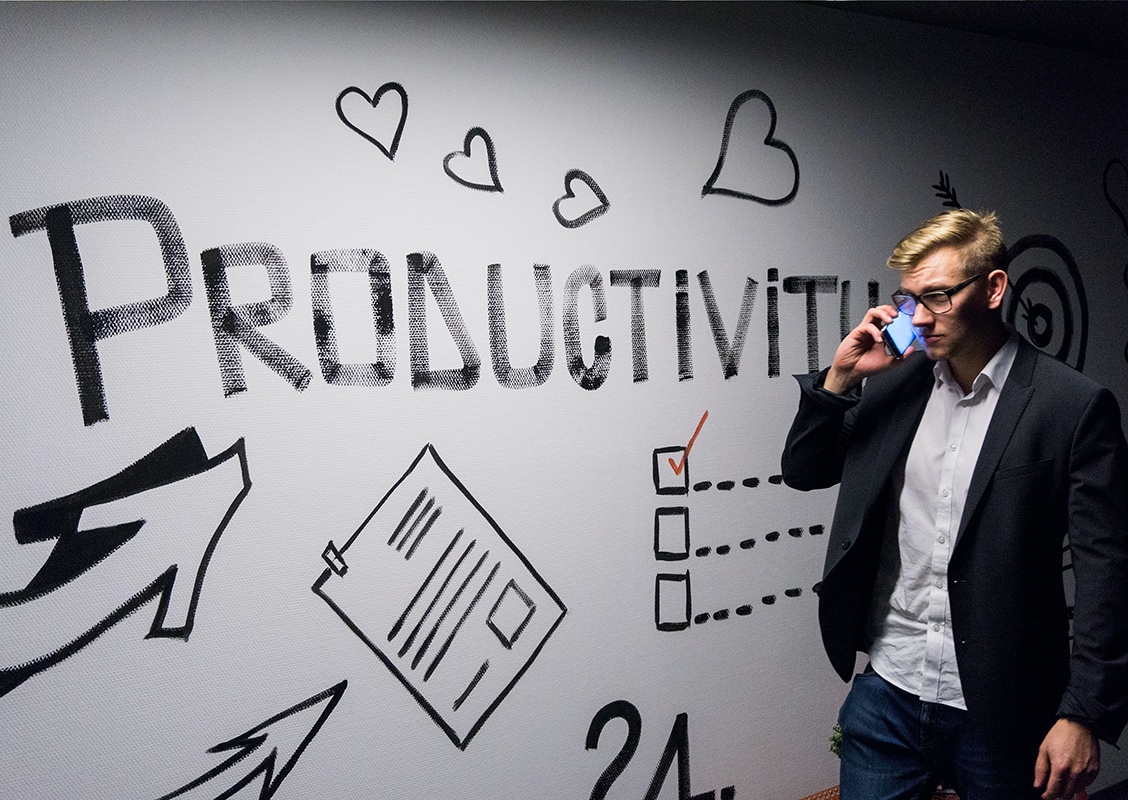You have a frustratingly busy work schedule. You have a massive heap of things to do. You have back-to-back meetings to attend, and you're running on coffee. Plus, you have a side project you've been eager to start, but with such an apocalyptic schedule, you shudder to even think about it.
We understand. It's no different than anybody else trying to climb the corporate ladder of success in this fast-paced world. And if there were 30 hours in a day instead of 24, you could get a lot of stress off your shoulders. But alas, that's not the case, which begs the question:
Is there anything you can do to propel your schedule and get a big portion of your to-dos done with time to spare?
Quite simply, yes, there is. And that's by finding out what hours of the day you perform the best. In other words, you need to determine what hours of the day your brain is most productive and then turn on your beast mode during those hours.
Find Your Rhythm

It's important to first understand that the hours of the day you get the most work done won't be the same for the next person. It's different for everyone. However, what's true is that there's a time window during the morning where our brains function more dominantly compared to any other time during the day. For example, you may work more productively during the 10-12 slot on your height adjustable desk, whereas you'll start to feel a bit lazy after having lunch.
But why does that happen?
Good question. Well, the fact is your body is fuelled by what's known as a circadian rhythm. These are just fancy science words for your body's internal clock. This clock is responsible for helping you become more productive both physically and mentally during the day. It also accounts for factors like feeling lazy, hungry, and tired. But it also influences your productivity.
So, if you feel as if you perform your best in the morning hours, then chances are, you'll always work effectively in the morning. However, if you feel as if you're more energised at night hours, you'll always be productive in that time frame.
Understanding When Your Brain Is Most Productive
To figure out when you're most productive, you have to first determine the time frame of your productivity. According to research by Redbooth, it was identified that up to 28 million projects or tasks were done by people within the 9 am to 11 am time slot. So, while we can safely assume that the 9-11 time frame is the most productive for a lot of people, it may not necessarily be the case for you or many others. That's because everybody's brain and body aren't wired the same way.
Fortunately, figuring out when you're going to be most productive relies on your physiology.

However, while this may sound a bit too simple, it isn't. So, to find out your productive hours, you're going to need to listen to your body and note down the nuances of your physiology. Your body is going to tell you when it feels most energised and ready to plough through the day. And when that happens, you'll need to write the time down when you begin feeling productive.
To begin, you need to create a log where you can monitor some important factors, such as the level of your alertness, your energy levels, and that sudden burst of productivity you feel. You can write down how productive you feel by scaling it from 1-10. For effective results, you should start doing this every hour while you're at your standing desk.
Moreover, every hour, ask yourself how energised and focused you feel. For example, do you feel more sharp and honed in at 9 am or 10 am, or do you start to feel distracted, tired, and groggy after 10 or 11 am? By using numbers to determine your psychological and physiological state, you'll have the ability to precisely measure your productivity over time.
Do this for 2-3 weeks and compare results every week. Also, it would be smart to determine patterns as well. For instance, identify what time of day you feel the most productive compared to the day before. If you were more productive, try to figure out why and work on it.
Bottom Line
So there you have it, a comprehensive look at how you can identify your most productive time of the day by figuring out different patterns and listening to your physiology. Based on the results, you'll be able to get the most important tasks of the day done and have plenty of time to take care of the rest.